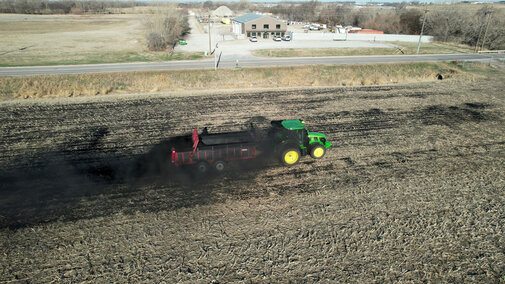Compared to other soil amendments, biochar stands out. This material, produced by pyrolysis of waste wood or other organic waste material, can reliably increase soil organic matter content in the long-term without needing repeated applications and has exciting potential to enhance carbon sequestration in soil. Despite receiving increased attention both from researchers and the public, biochar is still relatively new and the effectiveness of this treatment for larger-scale agricultural operations remains underexamined.
A University of Nebraska–Lincoln research team led by Michael Kaiser, assistant professor of agronomy and horticulture, in collaboration with the City of Lincoln and with biochar sourced from Oregon Biochar Solutions, identified this knowledge gap and sought to bridge it by expanding upon previous research efforts involving biochar and regenerative agricultural practices such as cover cropping and no-till. While Kaiser has previously led projects involving biochar, the size of this experiment — 16 acres in total, of which eight acres were applied with biochar — was a step up in scale and represents the largest biochar field trial in Nebraska and is among the largest in the United States.
Read more about the innovative approaches to this field trial at IANR News.

